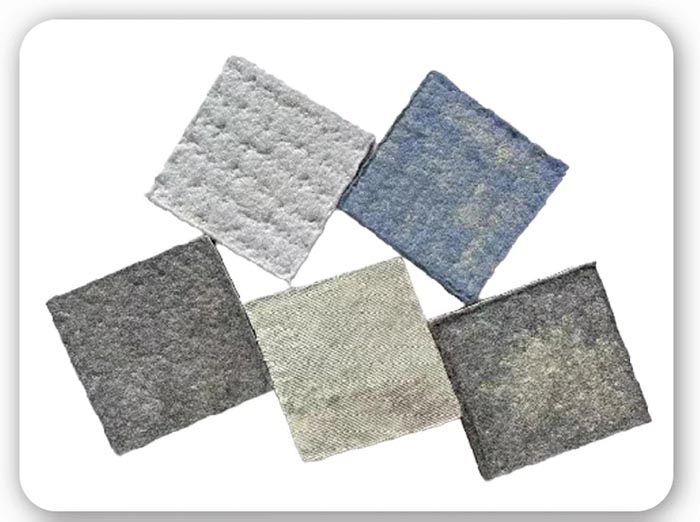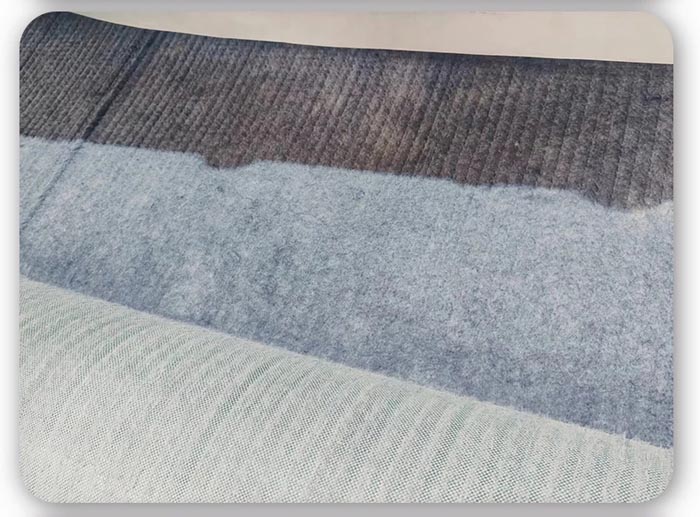Concrete canvas for river channel slope protection
Short Description:
Concrete canvas is a soft cloth soaked in cement that undergoes hydration reaction when exposed to water, hardening into a very thin, waterproof and fire-resistant durable concrete layer.
Products Description
The concrete canvas adopts a three-dimensional fiber composite structure (3Dfiber matrix) woven from polyethylene and polypropylene filaments, containing a special formula of dry concrete mix. The main chemical components of calcium aluminate cement are AlzO3, CaO, SiO2, and FezO;. The bottom of the canvas is covered with a polyvinyl chloride (PVC) lining to ensure complete waterproofing of the concrete canvas. During on-site construction, no concrete mixing equipment is required. Simply water the concrete canvas or immerse it in water to cause hydration reaction. After solidification, fibers play a role in strengthening concrete and preventing cracking. At present, there are three thicknesses of concrete canvas: 5mm, 8mm, and 13mm.
Main characteristics of concrete canvas
1. Easy to use
Concrete canvas can be provided in large rolls in bulk. It can also be provided in rolls for easy manual loading, unloading, and transportation, without the need for large lifting machinery. Concrete is prepared according to scientific proportions, without the need for on-site preparation, and there will be no problem of excessive hydration. Whether underwater or in seawater, concrete canvas can solidify and form.

2. Rapid solidification molding
Once the hydration reaction occurs during watering, the necessary processing of the size and shape of the concrete canvas can still be carried out within 2 hours, and within 24 hours, it can harden to 80% strength. Special formulas can also be used according to the user's specific requirements to achieve rapid or delayed solidification.
3. Environmentally friendly
Concrete canvas is a low-quality and low-carbon technology that uses up to 95% less material than commonly used concrete in many applications. Its alkali content is limited and the erosion rate is very low, so its impact on the local ecology is minimal.
4. Flexibility of application
Concrete canvas has good drape and can conform to the complex shapes of the covered object surface, even forming a hyperbolic shape. The concrete canvas before solidification can be cut or trimmed freely with ordinary hand tools.
5. High material strength
The fibers in concrete canvas enhance material strength, prevent cracking, and absorb impact energy to form a stable failure mode.
6. Long term durability
Concrete canvas has good chemical resistance, resistance to wind and rain erosion, and will not undergo ultraviolet degradation under sunlight.
7. Waterproof characteristics
The bottom of the concrete canvas is lined with polyvinyl chloride (PVC) to make it completely waterproof and enhance the material's chemical resistance.
8. Fire resistance characteristics
Concrete canvas does not support combustion and has good flame retardant properties. When it catches fire, the smoke is very small and the amount of hazardous gas emissions produced is extremely low. The concrete canvas has reached the B-s1d0 level of the European flame retardant standard for building materials.















